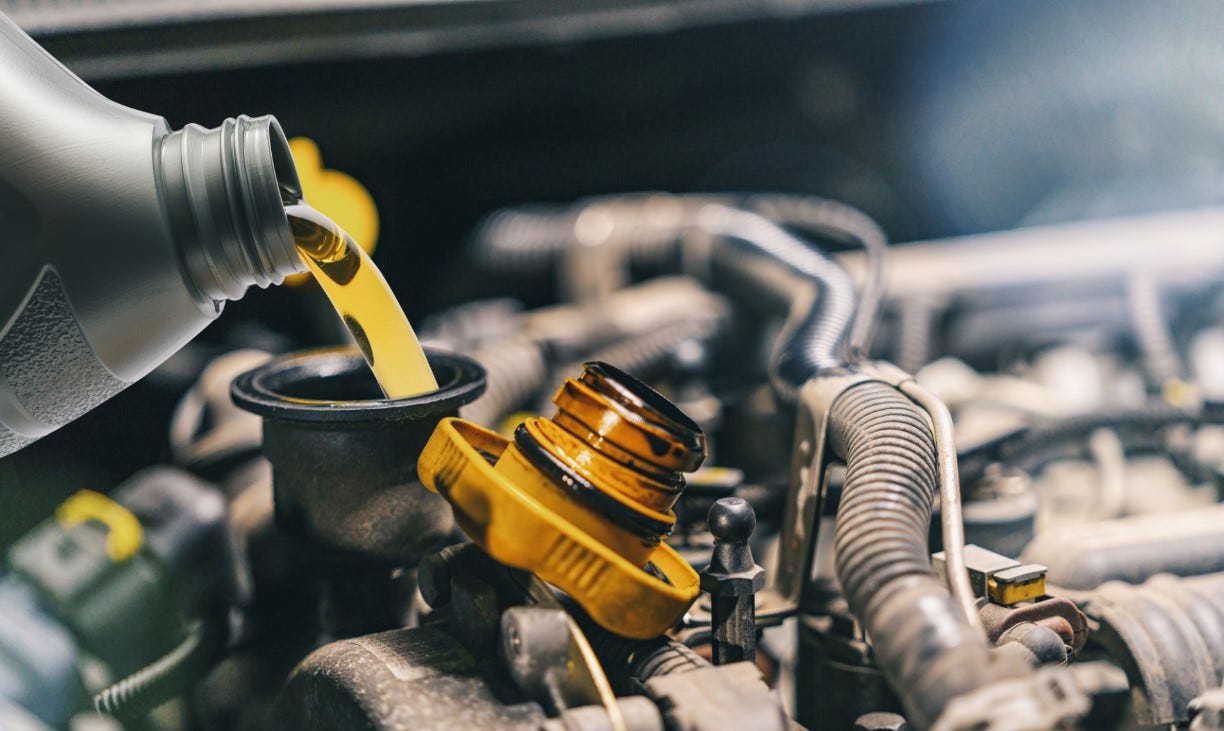What are you prepping for? A storm? Wildfire? Job loss? TEOTWAWKI?
Preparedness means much more than just stocking up on stuff.
No matter how much we prepare, it probably won't be enough. Nevertheless, we must do everything we can, think about how long we need to sustain ourselves, and insure that our loved ones will be okay.
This won't be a typical preparedness post (thank God, right?) We've all seen enough of those. If you are preparing, you are working toward a goal. If not, then you're just an idiot and you, your wife and your children will become food and playthings for the barbarians when the worst happens. You probably ought to really work on your life choices.
Okay, if you're still with me, good. Let's talk about something specific... your car or truck. Your vehicle is your lifeline to work, shopping, emergency services and, if necessary, bugging out. Are you truly maintaining it?
One of the preparedness channels I was watching (don't remember which one) spoke about someone he heard from that ended up spending $17,000 for a new engine for his Ford Expedition, and was wondering if he should have just bought a new truck. First of all, he was ripped off terribly... $17,000, if true, is inexcusable, and a little online research would have revealed that it should have cost no more than $10,000, and a rebuilt would be considerably less.
So, what should he have done? Okay, first of all, sometimes engines just fail. However, I am a firm believer that regular maintenance, including oil changes every 5,000 miles with high quality synthetic motor oil will greatly extend the life of an engine. I got nearly 550,000 miles on my Ford F150 before it was suggested that I replace the motor, as the cam-chain tensioner was failing. I wanted to have the shop fix the tensioner, but was persuaded that the bottom end of the engine was very likely nearing the end of it's life simply because of the mileage. In retrospect, I made a stupid choice, and should have made the repair for $1,700 rather than the $5,500 for the rebuilt motor. I believe that the shop owner believed what he said and didn't want to have me pay for a repair only to have to replace the engine soon anyway. Live and learn. I absolutely believe I could have gotten another 100,000 to 200,000 miles out of that engine. The truck now has well over 600,000 miles on it. Oh, did I mention that it is the original transmission? No? How did that happen? Every 50,000 miles I had them dump the tranny pan, crank the motor to pump out the rest of the fluid, then refill the 13 quarts it needed plus replace the filter. EVERY TIME. That transmission is smooth and still shifts perfectly.
Why have I told you this? Because most people would have gone through six vehicles OR MORE in the time I drove, and still drive, one. Let's do some math. Assuming an equivalent vehicle would have cost $40,000 to replace the F150 in 2006, then $45,000 in 2009, then $50,000 in 2012, $55,000 in 2015, $60,000 in 2018, and $65,000 in 2021, if my math is correct, that would have been $325,000 for vehicles PLUS THE INTEREST. I can promise you I haven't spent $325,000 maintaining my current vehicle during that time. I have spent less than $30,000, and that includes the engine replacement as well as some stupid repairs I didn't need because a dealership screwed me over (never again).
In the last 22 years, I calculate that with this alone I saved nearly $300,000. This could have been even more if I had taken the time to do my own oil changes and small repairs. Things I could have learned to do. Things ANYONE can learn to do.
That adds up to a lot of preps, not to mention a far superior quality of life. If you take care of your stuff, it will last a long time.
Here's another idea. Our washer went out recently. Well, it and the dryer is as old as my truck. However, upon shopping for a new washer and dryer and seeing the $1,400 price tag for equivalent replacements, I decided to take it to a shop for repair. $150. Works like new. The shop owner also indicated that the older units like what we have were built much better than the new ones. The money I saved was enough for a year of wheat berries, or five years of fertilizer for the garden, or a new rifle, or the wood I need to build a small shop.
Spend your money wisely, folks. We may have five years, maybe ten before a solar storm wipes out the grid, and then there won't be ANY new stuff, and you better know how to repair things, purify water and grow food. You would be astonished to find out how much money you can save by just doing a little bit of research, and that money can be used to further prepare yourself and your family to survive what's coming. And you know it's coming. I'll have more ideas to share soon.




